- Details
- Category: News
Better Knowledge for better care.
On the 26th of June which is the International Day Against Drug Abuse and Trafficking (World Drug Day). ECAD together with its partners African Youths Initiative on Crime Prevention and the World Federation Against Drugs held a digital event to discuss tangible steps forward in prevention drugs use in the light of the ongoing COVID epidemic from an African/European perspective.
ECAD gave an overview on the European perspective on drug markets in the ongoing covid pandemic and what steps actors on drug markets takes to accomodate to the new situation. Though most supply routes have remained upon due to shipping still happening as normal local retail drug markets seem to have been offset somewhat in the light of tight restrictions. Active users have been faced with the double burden from not being accomodated by a stressed health care system and also subject to lockdowns. This highlights the need further emmphasize the development of proper infrastructure for prevention of drugs use and to facilitate the full recovery from drugs for active users.
- Details
- Category: News

By signing the Resolution on the accession of the City of Zagreb to the European Network of Drug Free Cities, the City of Zagreb today became a part of that European Network at the Dverce Palace. The City of Zagreb has pledged to reject all requests for drug legalization, systematically promote drug prevention programs, work on the treatment and counseling of drug addicts, and work to combat any drug abuse. The resolution was signed by Mayor Milan Bandic in the presence of Vigg Lutcherath, President of the European Network of Drug Free Cities.
I am pleased that today the City of Zagreb is joining the club of 265 cities in Europe without drugs. This is an honor and an obligation that, with this signature, on behalf of the citizens of Zagreb, we will do everything we can to network as many Croatian cities as possible with the intention of making Zagreb and Croatia drug-free, said Mayor Bandic.
Viggo Lutcherath, ECAD President, expressed his pleasure that from now on Zagreb will be able to participate in conferences that they organize at least once a year, all with the aim of preventing and rehabilitating and treating drug addicts, and emphasized that drugs are a huge problem not only for addicts but also to their families and their surroundings. ECAD's international experience and practices will certainly help the City of Zagreb systematically address drug abuse and create even more successful educational projects that highlight the importance of prevention as the best tool in the fight against drugs.
European Network of Drug Free Cities - ECAD was founded in 1994 at the initiative of the City of Stockholm and is Europe's leading network of drug organizations promoting drug-free Europe and representing millions of European citizens. ECAD brings together cities from 30 European countries and supports the existing United Nations drug conventions that oppose legalization and encourage stronger national and international cooperation in the fight against drugs.
Drugs are an ever-growing, multiple threat to our societies. This is why coordination at national, European and international level is needed in order to solve the problem as effectively as possible. New legal frameworks for new psychoactive substances and enhanced cooperation with international partners bring visible results, and thus the City of Zagreb's membership of ECAD will further combat this growing problem. Approximately 96 million adults in Europe have tried some type of illegal drug over their lifetimes, with an estimated 1.2 million people starting addiction treatment annually, which further drives us to systematically address this problem and invest in prevention programs, said Ivan Celić. President of the Commission of the City of Zagreb for the Prevention and Suppression of Drug Abuse and Other Forms of Addiction
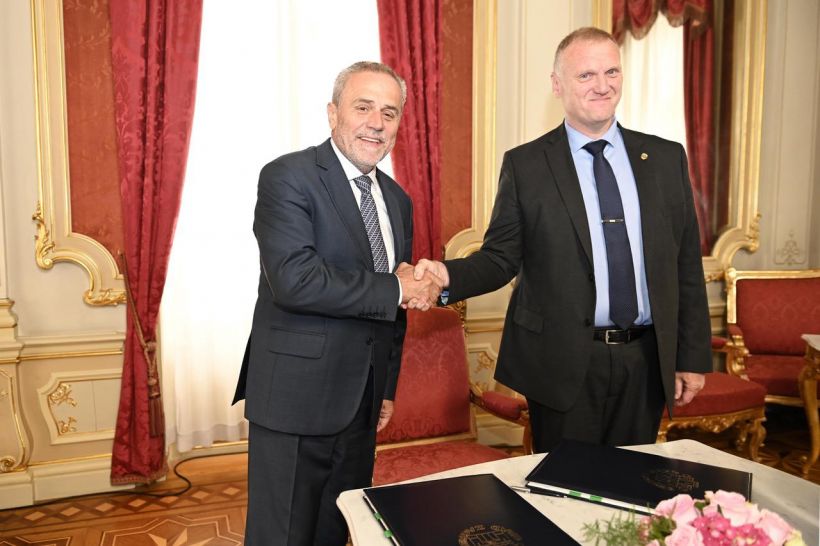
Mayor of Zagreb Milan Bandic and ECAD Chairman Viggo Lutcherath

The city has signed the ECAD declaration
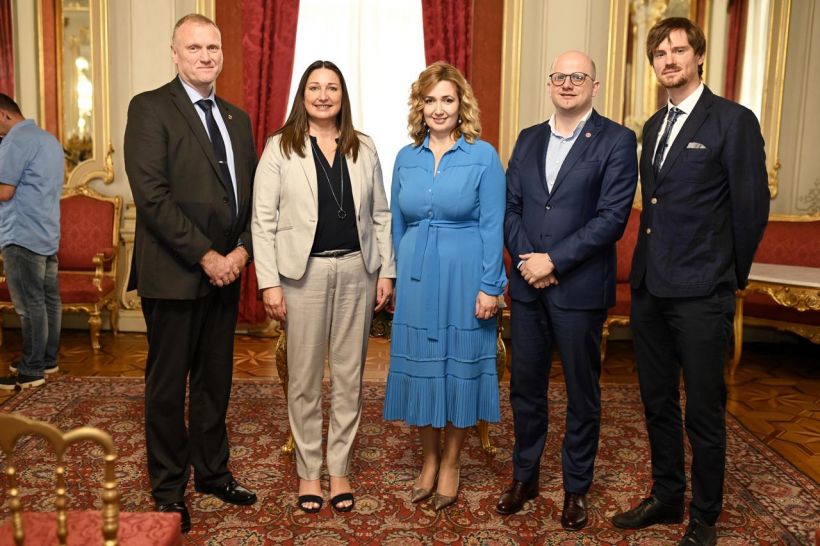
Viggo Lutcherath Chariman of ECAD, Diana Madunic Swedens Ambassador to Croatia, M.D Ivana Portolan Pajic, Ivan Celic Member of Croatian Parliament, Erik Leijonmarck Secretary General of ECAD
- Details
- Category: News
Dear Mrs Vice Mayor,
Your Excellency Ambassador,
Dear Colleagues,
Thank you for the hospitality of the city of Blagoevgrad shown to ECAD and for inviting me here to attend the award in memory of Giovanni Falcone.
My name is Erik Leijonmarck and I am the secretary general of European Cities Action Network for Drug Free Societies (ECAD) which this city, Blagoevgrad, is a member.
ECAD was founded in 1994 by cities that wanted stronger actions on illicit drugs and reject legalization of them. Since then, our cities have worked very hard to address the size of their drug problems through concerted actions on drugs by investing in prevention, treatment and control.
Today that fight is more important than ever. The challenges we are facing are twofold:
The first challenge comes from commercial interests who invest to make drugs legal, accepted and promoted to young people, much like alcohol and tobacco is today. With commercialized cannabis in North America, parents across the world are now facing an assault on their young ones from commercials, from popular culture and from wall street aimed at sparking addiction in the young vulnerable brain.
Parents need to be vigilant on the allure of drugs, reinforced by commercialization, for youngster. Parents need to be close with their children and have a strong communicative bond with them, embodied by mutual trust and respect. Parents need to be monitoring their children and know what they are up to and with whom their children spend time.
The second challenge comes from the mafia and the traffickers in drugs. Society cannot cede ground to corruption, violence or threats to the rule of the law. Those who do their part in this fight, prosecutors, law enforcement, judges, customs officers and others, must be remembered and honored as they truly are heroes to the rest of us.
Let the example set by Giovanni Falcone ripple through history and make a precedent for all of us to keep our vigilance up and spirits high.
I want to thank the city of Blagoevgrad for keeping the flame burning and Giovanni Falcones memory vivid.
Thank you.
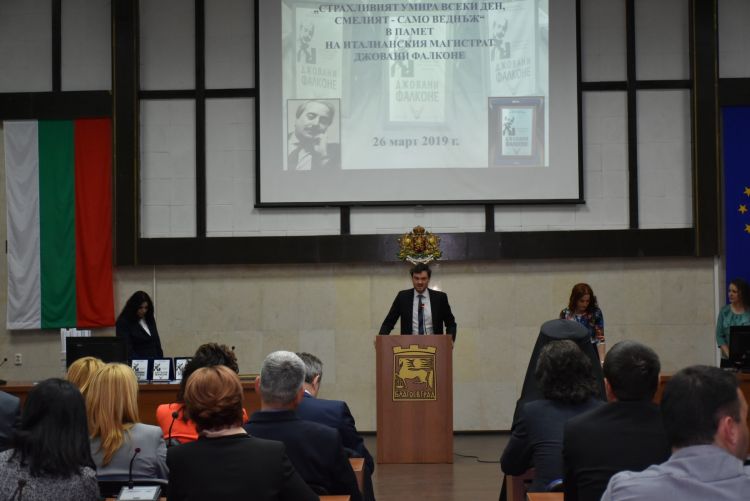
- Details
- Category: News
The conference will be held in beautiful Cork on Ireland on June 13-14th 2019 and discuss the topic of recovery from addiction.
In what ways can municipalities facilitate recovery among their citizens? What ís recovery capital? How can we replace the chain of brief interventions, health stabilizations, relapses and criminality to sustain a long term recovery? How can we progress those with an addiction along a journey from being a heavy burden on themselves and others towards becoming valuable and contributing members of their societies?
These are some of the questions we look forward to discuss with you.
Registration here:
Hotels here:
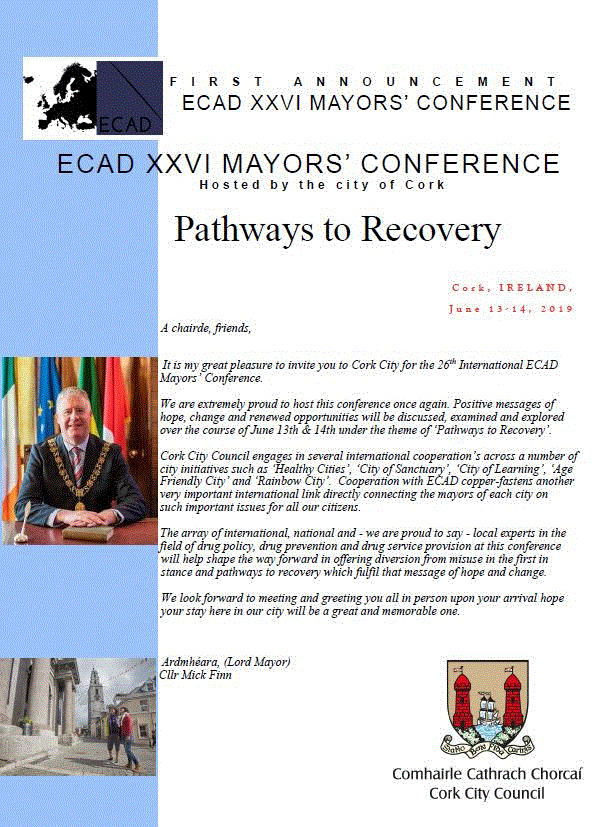
- Details
- Category: News
Participation is free of cost.
09.00-09.20 Introduction
Sofia Herlitz County Administrative Board Stockholm
Therese Holmkvist Stockholm City, Social Administration
Erik Leijonmarck, ECAD
09.20-09.50 About Planet Youth – how it started and what was done,
Jón Sigfússon, Planet Youth, ICSRA, Iceland (in English)
09.50-10.30 Theoretical starting points and scientific evidence
Inga-Dora Sigfúsdottir, Planet Youth, ICSRA, Iceland (in English)
Coffee
10.45-11.30 About Planet Youth in Sweden – challenges and way forward
Håkan Leifman, Planet Youth ICSRA
11.30-12.00 Discussion, questions
Read more at:
https://planetyouth.org/2019/01/16/planet-youth-seminar-in-stockholm-february-the-6th/

Subcategories
The ECAD Mayors' Conference
28th Mayor's Conference - Invitation - May 11th and 12th, 2023 - Malta
On May 11th and 12th, the 28th ECADs Mayor's Conference will take place at Dolmen Hotel in Qwara, Malta. We warmly invite you to join us and expand your knowledge on prevention, treatment, rehabilitation and recovery. The conference will highlight best practices and research in the field. It will offer the opportunity to network with other ECAD members, representatives from local authorities, and non-governmental organisations. Registration is free for the first person attending from your organisation!
Additionally, the conference allows for a unique experience as it includes a full day of field visits on May 12th. All participants are invited to Komunita’ Santa Marija, which will be sharing information on their services, and their experiences, and will engage in discussions.
The Agenda has now been published! The deadline to register is April 22nd
Day 1
DATE | TIME | VENUE
11/05/2023 | 09:00 – 17:30 | The Oracle Conference Centre - Dolmen Hotel Qawra, St. Paul's Bay
08:30hrs – 09:00hrs| Registrations
09:00hrs – 09:05hrs| Welcome Address by the President of Local Councils’ Association - Mr Mario Fava
09:05hrs – 09:15hrs| Welcome Address by ECADs Chairman of the Board from Kristiansand, Norway - Mr Viggo Lütcherath
09:15hrs – 09:20hrs| Welcome Address by the Parliamentary Secretary for Local Government - Hon. Alison Zerafa Civelli
09:20hrs – 09:40hrs| Inspirational speech – “Push yourself to do it because no one else is going to do it for you” by the President Northern Regional Council & LCA Executive Member - Mr. Clifford Galea Vella Maslennikov
09:40hrs – 10:30hrs| Panel Discussion and Presentation – Discussing the Local Context
The prevention team within Sedqa would like to present the following studies.
Study 1: The Role of a Workplace Policy in Addressing Employees’ Substance Misuse Difficulties.
Aim: To explore the probability of an employee seeking support for a substance misuse difficulty elicited by the workplace ethic fostered by management. Through this paper, we seek to determine a possible correlation between the implementation of a substance misuse policy at the workplace, and employees’ probability to seek guidance and support from their employers for a substance misuse-related difficulty.
Study 2: A Substance Misuse Policy in the Workplace: Senior Leadership Teams’ Attitudes
Aim: To explore how senior leadership teams’ (SLTs) attitudes inform the drafting of a substance misuse policy and how those attitudes inform job retention procedures in the case of an employee disclosing a substance misuse difficulty. Uncovering SLTs’ attitudes toward addiction is essential to understand how these beliefs inform workplace policy aims and actions on substance misuse.
Keynote speakers representing Sedqa Prevention team:
Mr Jareth Grima – Social Worker
Ms Sheryl Spiteri – Prevention Team
Ms Stephanie Mizzi Cascun – Prevention Professional.
10:30hrs – 11:00hrs| Coffee Break
11:00hrs – 11:45hrs| Mr Jon Sigfússon Planet Youth – Evidence-based drug prevention.
Mr Sigfússon is the international programme director for the evidence-based Planet Youth Guidance primary community-based health promotion intervention. Over the course of 20 years, Mr Sigfússon directed the Icelandic Centre for Social Research and Analysis (ICSRA).
11:45hrs – 12:30hrs| Mr Matej Košir - Strategies and tactics to prevent cannabis legalisation in Slovenia - The power of prevention science and advocacy.
Mr Matej Košir has been working in prevention and advocacy in the field of alcohol, tobacco, and other drugs for around 25 years. Since 2006, he has been involved in more than 30 European projects in the fields of health, justice, education, youth and research as a project or work package leader.
12:00hrs – 14:00hrs| Seated Buffet Lunch
14:00hrs – 14:45hrs| Profs. Christian Thurstone, MD - The impact of legalisation in Colorado, USA – challenges faced by [local] authorities and communities.
Profs. Thurstone is a professor of psychiatry at the University of Colorado and a child psychiatrist who specialises in addiction treatment. He published some of the first papers on the potential effects of marijuana legalisation on youth and has devoted his professional life to preventing and treating adolescent substance misuse.
14:45hrs - 15:30hrs| Ms Mulka Nisic - Recovery Cities - Creating sustainable connections and networks in cities.
Ms Mulka Nisic has been involved as a Regional Project Manager and International Relations Officer at the NGO Celebrate Recovery, and Secretary General of the Recovered Users Network-RUN.
15:30hrs - 16:00hrs| Conclusive Remarks
16:00hrs – 17:30hrs| ECAD Plenary for ECAD Members only
19:30hrs – 23:00hrs| Welcome Dinner at The Pavilion Suite, Westin Dragonara St Julian’s - Separate Registration is required in the application form.
Day 2
DATE | TIME
12/05/2023 | 09:15 – 19:00
09:15hrs – 09:30hrs| Transport leaves from Dolmen Hotel & Salini Resort to Komunita Santa Marija
09:30hrs – 09:45hrs| Registration and Welcome Coffee
09:45hrs – 10:15hrs| Introduction to the services offered by Komunita’ Santa Marija.
10:15hrs – 11:00hrs| Sharing of good practices and discussion
11:00hrs – 11:30hrs| Tour around Komunita’ Sanata Marija premises
11:30hrs – 12:00hrs| Transport to Ħagar Qim in Qrendi
12:00hrs – 13:15hrs| Ħagar Qim Visit
13:15hrs – 13:30hrs| Transport to Xgħajra
13:30hrs – 16:00hrs| Lunch (you will have time for a short stroll by the seaside)
16:00hrs – 18:00hrs| Cultural Visit in Mdina – Visiting the National Museum of National History
18:00hrs – 19:30hrs| Visiting Dingli Cliffs
19:30hrs - 15:30hrs| Transport to Salini Resort and Dolmen Hotel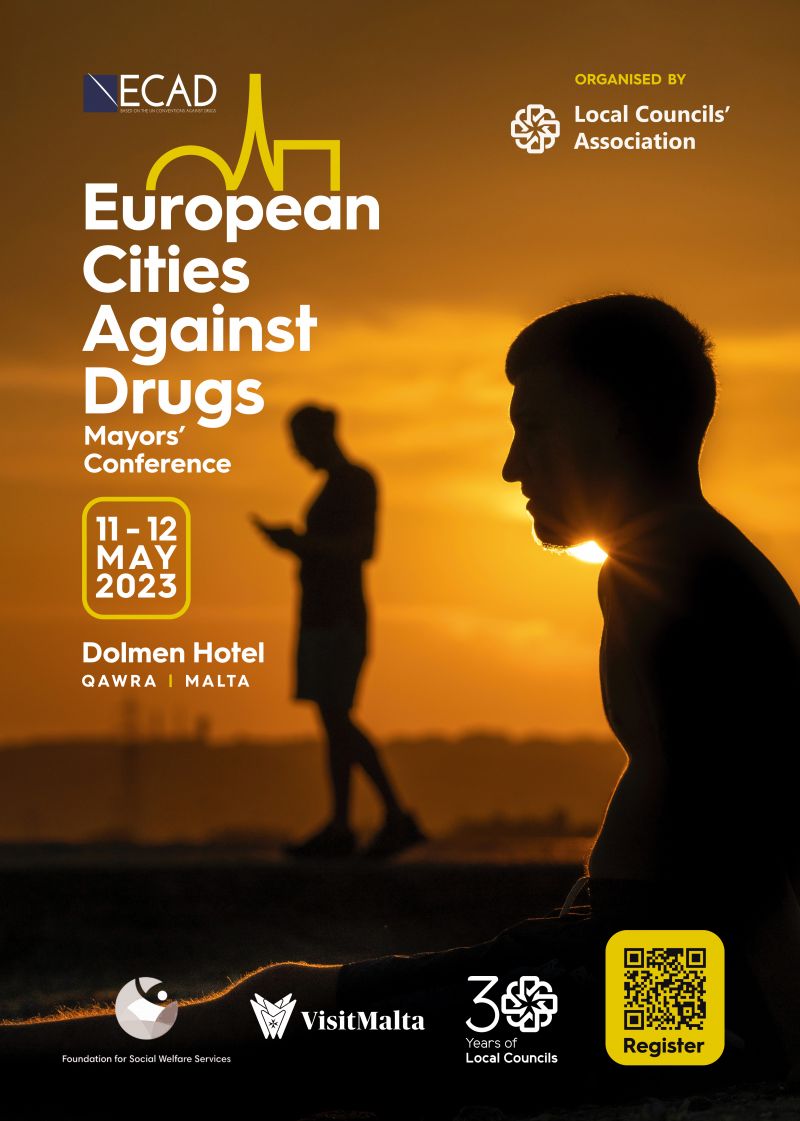
27th Mayors Conference - Gothenburg and online 2022
The 27th Mayors' Conference and 8th World Forum took place in Gothenburg and online 13-14th June 2022.
The World Forum and Mayor’s Conference is a meeting place for people from all continents who are working to prevent drug abuse, ensure evidence-based and gender-sensitive practices, increase access to treatment, and to promote recovery and reintegration services. This global forum is one of its kind where NGOs, self-help groups, treatment centres, scholars, local, regional, and national authorities, politicians and other decision-makers, and others from around the world will meet to share evidence and best practice experiences. This year’s World Forum will include three main tracks: Prevention, Treatment/Recovery, and Advocacy, which will stretch over 1,5 days followed by the WFAD Congress and ECAD Mayors plenary session.
We are proud to announce that the Forum was inaugurated by UNODC Executive Director Ghada Waly and will be joined by experts from around the world.
Read more on the website: https://2022.wfad.se/ and access the full report here. 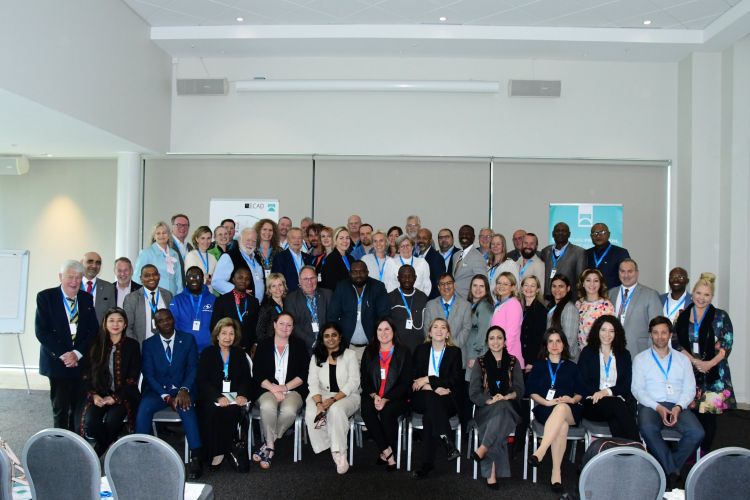
26th Mayors Conference - Cork 2019 
25th MAYORS´ CONFERENCE
and 6th World Forum Against Drugs 
Conference materials
Kevin Sabet, PhD, Director, Drug Policy Institute, University of Florida, President, Smart Approaches to Marijuana (SAM), USA
Speech at the WFAD /ECAD 25th Mayors Conference, Gothenburg, May 15, 2018 (Video 5min.)
Supply reduction in Peril? A lot of the worlds`s drug supply emanates from a war-torn Columbia.
Dr. Michael Jonsson, FOI, Swedish Defence Research Agency
Text to the slides (PDF)
In Columbia, a peace deal has been struck, which gives hope for a closure of insurgency and violence. (PDF)
Thomas Pietschmann, Dr, Drug Research Section, Division for Policy Analysis and Public Affairs
The International drug control system, global/regional and national drug patterns and trends, and supply reduction efforts at the international level (PDF)
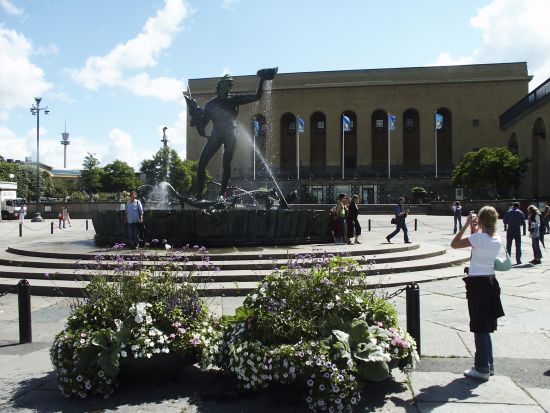
Photo: Götaplatsen @ Klas Eriksson
Annual Mayors` Conference and the 6th World Forum Against Drugs will take off on May 14-15 in Gothenburg this year.
This joint event will address a growing interest to the effective prevention practices, full recovery and alternatives to incarceration and to life-long dependency on drug treatment.
The conference will create a room for elaborating a practical guide to how a recovery city will look like, this will be grounded on the recent evidence-based research. Sheffield Hallam University (UK), Ghent University (Belgium) and the City of Gothenburg have already started working on this guide in practice.
In order to find out more and to register please visit a joint webpage here.


MAYORS` CONFERENCE 2017


ECAD 24th Mayors` Conference materials
On June 12-13, the city of Kaunas hosted ECAD 24th Annual Mayors`s Conference 2017
Safe Cities Without Drugs. Preventing, Protecting, Policing
Key-note speakers:
David W. Spencer, Field intelligence Manager, Drug Enforcement Agency, European Region
Supply reduction and dismantling drug trafficking organizations: In what ways can local communities benefit (PDF)
Kim Nilvall, Swedish National Bureau of Investigation, Intelligence section, Organized crime
Police work in socially disadvantaged areas in Sweden: Impact of drugs on urban crime (PDF)
Torsten Stodiek, Deputy Head, Strategic Police Matters Unit, Community Policing Advisor, Transnational Threats Department, OSCE
Preventing terrorism and countering violent extremism and radicalisation that lead to terrorism:
A community and intelligence led policing approach (PDF)
Jon Sigfusson, Director for Icelandic Centre of Social Research and Analysis, Reykjavik University, ICSRA
Youth in Europe and Planet Youth (PDF)
Laimonas Vasiliauskas, Senior Specialist, Serious and Organized Crime Department, EUROPOL
European Illicit Drug Market (PDF)
Antonio Boscini, Health Director, San Patrignano Community, Rimini, Italy
Recovery and social reinsertion: San Patrignano Community model extended (PDF)

CONFERENCE PROGRAMME (PDF)
FIRST ANNOUNCEMENT (PDF)
Conference Booking Form
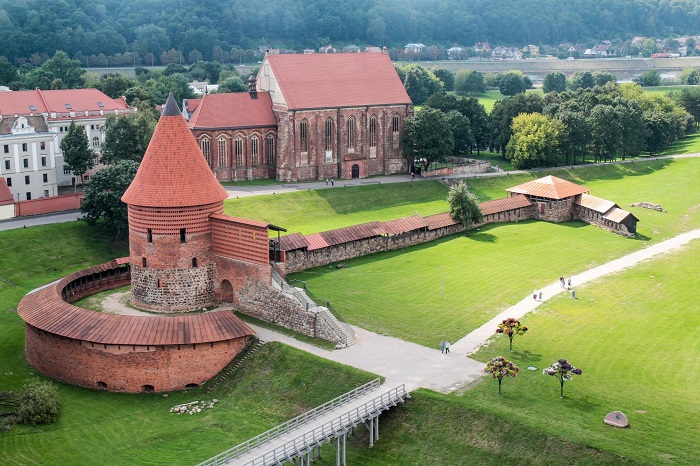
Kaunas Castle
Picture: @Rokas Tenys
Warm welcome to Kaunas, Lithuania!


